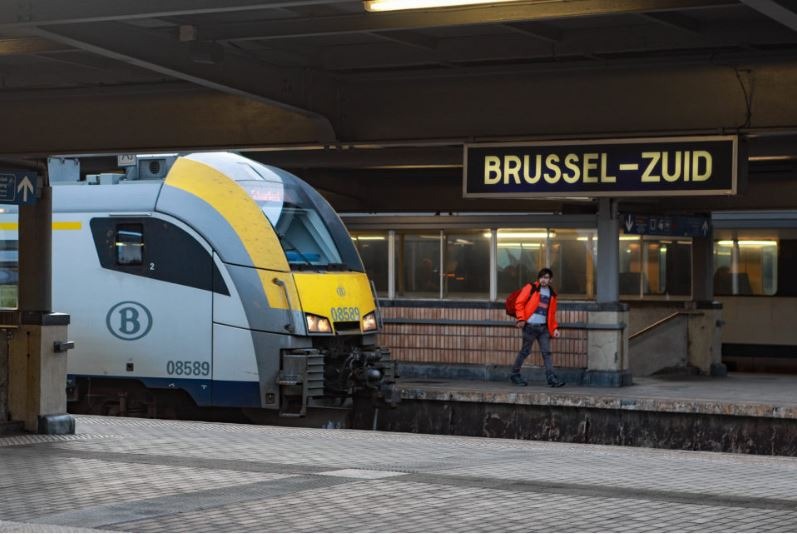Greenpeace and ten other organisations urged the Belgian governments on Friday to coordinate all public mobility solutions for a national mobility pact to discourage people from taking the car. Modelled after the energy pact, a national mobility pact should give Belgium a "concrete, efficient and sustainable" vision on mobility. Urban and regional transport is put forward as a priority in this reorganisation of railway transport.
All participants call for the introduction of synchronised schedules across the regions, based on an already proven successful model in Switzerland and Austria, where every thirty minutes, all trains and buses arrive and leave the station at the same time in connecting train stations.
Train-Tram-Bus, Inter-Environnement Wallonie, Bond Beter Leefmilieu, Test-Achat/Test-Aankoop, Mons University, the Christian Labour Union, the League of Families and the Unizo have all decided to join the movement.
"Our train network is pretty well configured to put such a system, based on targeted investments, in place. We’re already doing it for IC (inter-city) trains. The issue is that today, trains mostly cross through the countryside, not cities," explained Juliette Walckiers to NewMobility, in charge of mobility at Inter-Environnement Wallonie.
By reducing the connection time and increasing the other tram and bus networks, existing trains could be used more efficiently, Walkiers pointed out.
However, even though this proposal looks very good on paper, there are some difficulties in translating the plan into reality, according to NewMobility. The biggest issue is that the Federal government is in charge of the railways across the country, while the Regional governments are in charge of the trams and buses.
Therefore, the proposal asks for an organising transport authority, that should "collaborate closely with others to guarantee a correct framework", to be mandated.
According to Greenpeace, the Belgian institutional complexity should not stop all actors to collaborate. "Mobility is a complex matter because it touches on all other topics, such as taxes and infrastructure. Yet, Switzerland has managed to create such a system with a not so different institutional complexity," said Élodie Mertz, Transport and Air Quality expert at Greenpeace to NewMobility.
Maïthé Chini
The Brussels Times

